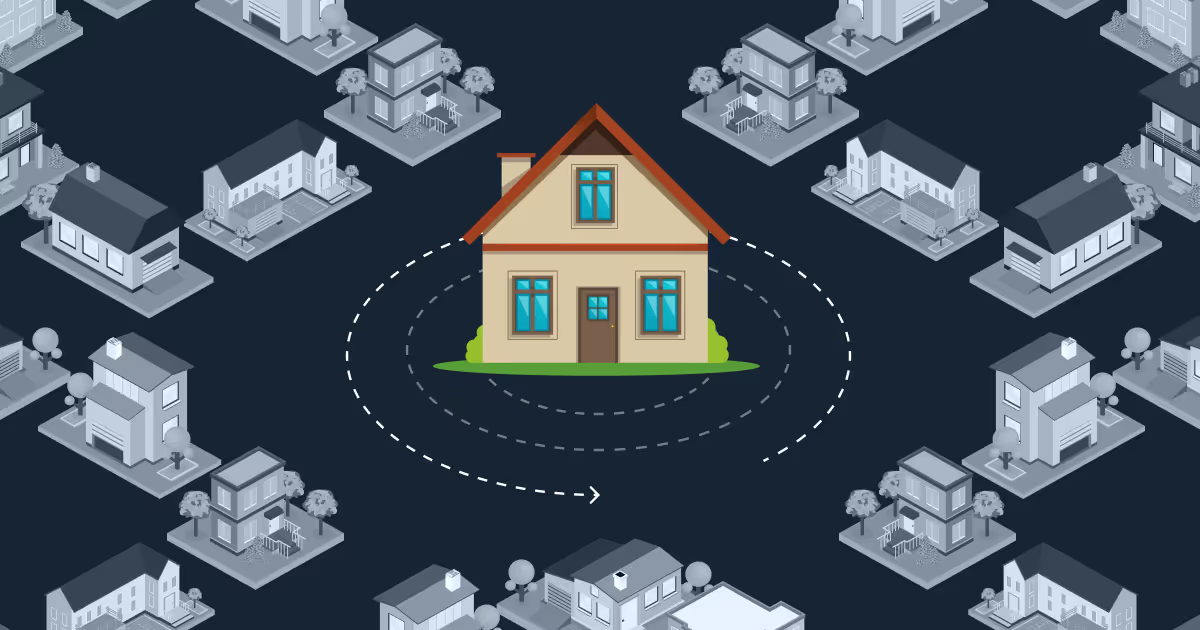
Proxy networks form a crucial part of the internet's infrastructure, enabling everything from data scraping to enhanced online privacy. However, their environmental impact often flies under the radar. As we grapple with the broader ecological consequences of our digital world, it's time to shine a light on the carbon footprint of proxy networks and explore the path toward sustainability.
The Energy Equation
At their core, proxy networks are energy consumers. Whether we're talking about datacenter proxies or residential proxies, they all require electricity to function. Datacenter proxies rely on servers that run 24/7, consuming power for computation, data storage, and cooling. The network infrastructure - routers, switches, and other equipment - adds another layer of energy consumption.
Residential proxies present a unique challenge. While each individual device might use relatively little power, the cumulative effect across millions of devices is substantial. Moreover, these proxies often run on less energy-efficient consumer hardware, potentially amplifying their environmental impact.
Quantifying the Impact
Calculating the exact environmental footprint of proxy networks is a complex task. Unlike centralized services, proxy networks - especially residential ones - are distributed across countless locations. This distribution makes it challenging to measure and optimize energy usage accurately.
However, we can make some educated assessments. Proxy networks generally consume less energy than large-scale cloud services or video streaming platforms. But their distributed nature and the sheer scale of some networks mean their cumulative impact is far from negligible.
Sustainability Practices in Action
Forward-thinking proxy network providers are already implementing strategies to reduce their environmental impact:
- Energy-Efficient Hardware: Using low-power servers and networking equipment, implementing power management features, and regularly upgrading to more efficient models.
- Software Optimization: Developing energy-efficient algorithms for request routing, using containerization and virtualization to maximize server utilization, and implementing smart scaling to match resources with demand.
- Green Data Centers: Selecting data centers powered by renewable energy sources, using advanced cooling technologies, and implementing heat recycling systems.
- Distributed Network Design: Strategically placing servers to reduce data travel distances, using edge computing principles to minimize long-distance data transmission, and load balancing to optimize resource usage.
- Remote Work Policies: Reducing the need for physical office spaces and minimizing employee commutes.
Carbon Footprint Calculation and Offset
Understanding and addressing the carbon footprint is crucial for environmental responsibility. This involves:
- Using standardized tools like the Greenhouse Gas (GHG) Protocol
- Considering both direct emissions (e.g., from owned servers) and indirect emissions (e.g., from purchased electricity)
- Investing in renewable energy projects
- Participating in reforestation and conservation initiatives
- Purchasing carbon credits from verified sources
Transparency is key. Ethical proxy providers should regularly publish environmental impact reports and subject their carbon footprint calculations and offset claims to third-party audits.
Future-Proofing Proxy Networks
The future of environmentally conscious proxy networks lies in innovation:
- AI-Driven Efficiency: Using artificial intelligence to optimize network operations and manage energy consumption.
- Renewable Energy Integration: Forming direct partnerships with renewable energy providers and exploring on-site renewable energy generation at data centers.
- Carbon-Neutral and Carbon-Negative Goals: Committing to carbon neutrality and exploring carbon-negative operations through extensive offset programs.
- Blockchain for Accountability: Using blockchain technology to provide transparent, immutable records of environmental impact.
- Eco-Friendly Residential Proxy Models: Developing energy-efficient protocols for residential proxy participants and creating incentive structures that reward energy-efficient participation.
Challenges Ahead
Despite progress, several hurdles remain:
- Measurement Difficulties: Accurately quantifying the energy use of widely distributed residential proxies and standardizing environmental impact measurements across diverse network types.
- Performance vs. Sustainability: Navigating the trade-offs between network performance and energy efficiency.
- User Awareness: Educating users about the environmental impact of proxy usage and encouraging responsible behavior.
- Technological Limitations: Current constraints in energy-efficient hardware for high-performance proxy operations and challenges in implementing renewable energy solutions in all network locations.
- Cost Considerations: Balancing the often higher short-term costs of sustainable practices with long-term environmental benefits.
The Road Forward
The environmental impact of proxy networks is a complex issue that demands attention and action. As the digital world continues to expand, so does our responsibility to ensure its sustainability. Proxy network providers must lead the charge in implementing eco-friendly practices, while users need to be conscious of their digital footprint.
By embracing energy-efficient technologies, optimizing network design, and committing to transparency and accountability, the proxy industry can significantly reduce its environmental impact. The path to sustainable proxy networks is challenging, but it's a journey we must undertake for the health of our planet and the future of our digital ecosystem.
FAQ
+
+
+
+
+
+
+
+
+
+
Discover your ideal proxy
Do you need to maintain the same IP across sessions?












.png)